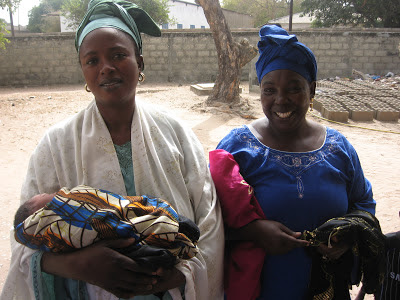Omugwo is a word among the Igbo-speaking people of Nigeria, which means the care given to a woman who has just had a baby.
In the Nigerian society, when a woman has just been delivered of a baby, it is traditional for family members from the couple to come around to help out with nursing the new mother.
At this early stage, the baby is also taken care of by any of the grandmothers or aunts who is around. They bath for the baby, change the diapers and ensure that the baby is comfortable, while the new mom’s only assignment to the baby will be to breastfeed.
There are situations where both grandmothers would be around to play their respective roles as grandmas to the new-born baby. Each grandmother would usually give care advice as it worked for her during her child-bearing years. However, any move to indicate that her style is ‘old school’ is not a welcome
idea.
idea.
Depending on the tribe the woman is from, the kind of care differs. But generally, the woman is served specially -prepared food made spicy with hot pepper and other local condiments.
It is important to know that some of the care rules include:
1. Giving the new mother hot water bath at least twice daily
2. She must have a hot compress on her stomach, which is believed to help expel blood clots
3. She must eat only hot pepper-soup; no oily food, no cold food
4. She must tie her stomach with a wide piece of cloth to help reduce belly
flab
flab
5. She must get used to sitting with her legs closed
During this period, new moms enjoy just lazing around and loving being cared for; it’s their right! The grandmothers are usually happy and even strategise on how to rotate the omugwo assignment.
Funny enough, there have been many cases of rivalries over who should be in charge of the affairs during the omugwo period; some mothers want to be in total control when it is their daughters, while the mothers-in-law also want to establish that their sons are heads of the homes.
In some instances, mothers or mothers-in-law have left the omugwo shortly after they start it, following disagreements over their welfare. So one is left to wonder what informs the commitment to omugwo.
While some women complain about their mother’s lack of commitment to them during the omugwo, some others say their mothers-in-law only come around to be ‘nursed’ rather than come to nurse them and the new baby.
In my own case, I enjoyed the care of a new mom ‘big time’. It was usually hot pepper soup with so much of fresh fish and every other necessary care followed.
I appreciate my mother-in-law for this, because she was a wonderful woman (now of blessed memory) who took joy in making her family comfortable.


Hi Debby, you have said it all. I think the couple should have it all planned out before the woman gives birth.
The two grandmothers should be on a kind of schedule. One comes first and completes her Omugwo while the second mother comes as soon as the other one leaves or just before she leaves. That way there will be no conflicts. I love omugwo!
Eh!interesting.men are seriously agitating for an opportunity to share from this Omugwo. How can only the mothers enjoying the season while their husbands stay back at home always expecting a bottle of hot drink when the woman returns.Men are equally stakeholders o!
Thanks Eya. I don't mind coming to help out when next! No dulling abeg.
True talk Claver,men are stakeholders in omugwo but what can they do to help if they go for it? Will they give the baby a bath or cook the pepper-soup? We are going to talk about that next time. Thanks.
This article is trully well-written